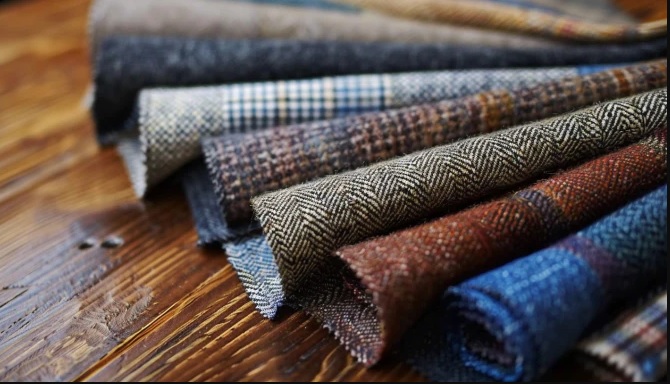Most of the machines in Indian jute mills are from China. Some of the key clusters where active jute mills are present are Champdany, Delta, Howrah, Kamarhatty, Kanoria, Mahadeo, Rameswaram, Tirupati and Titaghur. The Indian jute industry employs 4,00,000 mill workers and supports an estimated four million families. The market for diversified, value-added jute products is estimated at Rs 400 crores. It is growing 20 per cent year-on-year. The Jute Corporation of India is planning a tie-up with Patanjali for branding and promotion of jute products such as shopping bags and some fashion items. Amid a global push to reduce the use of plastic for environmental reasons, India is promoting jute as a material for reusable shopping bags, home furnishings, clothing, even diapers and women’s sanitary pads.
Jute is a natural fiber with a golden and silky shine. It is the second most important vegetable fiber after cotton, in terms of use, global consumption, production and availability. It has high tensile strength, low extensibility, and ensures better breathability of fabrics. Jute fiber is 100 per cent bio-degradable and recyclable and thus environmental-friendly. It is one of the most versatile natural fibers that has been used in raw materials for packaging, textiles, non-textile, construction, and agricultural sectors. It is used to make good quality industrial yarn, fabric, net, and sacks.
India emerges global leader in jute
- 1
- 2
- 3
- 4
- 5
- 6
- 7
- 8
- 9
- 10
Trust over trends is how fashion e-commerce is being redefined in Europe
The digital racks of fashion e-commerce are changing as a new report by BoF Insights ‘The New Era of Fashion... Read more
Global Sourcing Expo Insights: India to reshape Australia's sourcing landscape
The recently concluded Global Sourcing Expo Australia (June 17-19) in Sydney served as a vibrant testament to a significant shift... Read more
Global Sourcing Expo: Australia's premier sourcing hub expands reach and vision
The Global Sourcing Expo, a pivotal event connecting global suppliers with Australian trade buyers, continues to solidify its position as... Read more
Is Shein's green push just for show? New report raises doubts
Global fast-fashion behemoth Shein released its extensive 2024 Sustainability and Social Impact Report in June, a document exceeding 100 pages.... Read more
Global Sourcing Expo highlights reshaping of global textile and apparel supply c…
The aisles of the Global Sourcing Expo Australia, which concluded its three-day run from June 17-19 in Sydney, buzzed with... Read more
Weaponizing E-Commerce: What the M&S cyberattack reveals about retail's new …
The recent cyberattack that brought down Marks & Spencer's (M&S) online operations for nearly seven weeks has highlighted a critical,... Read more
Nylon's New Frontier: Marrying strength with natural grace
For decades, nylon has been synonymous with exceptional strength, durability, and resilience. From mountaineering gear to industrial applications, its tough... Read more
The Textile Revolution: Polyester's quest for natural perfection
For decades, polyester has been the workhorse of the textile industry, valued for its durability, wrinkle resistance, and affordability. However,... Read more
Beyond the Booths: How Global Sourcing Expo is redefining the Asia-Pacific sourc…
With the successful completion of third edition of Global Sourcing Expo Sydney, Julie Holt, Global Business & Exhibition Director, Global... Read more
Retail slows as trade accelerates, the paradox of 2025 fashion: Wazir Advisors J…
The global apparel industry, often a reliable barometer of consumer confidence and trade health, is passing through a delicate recalibration.... Read more












